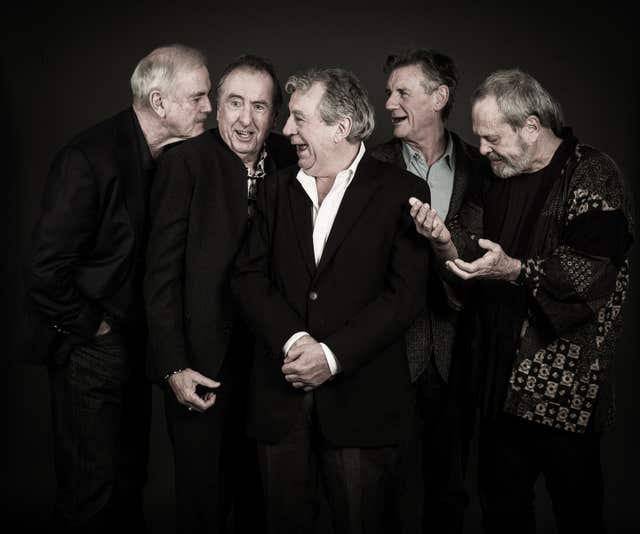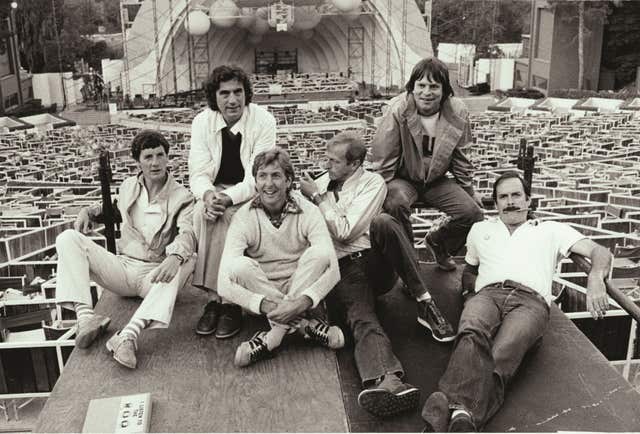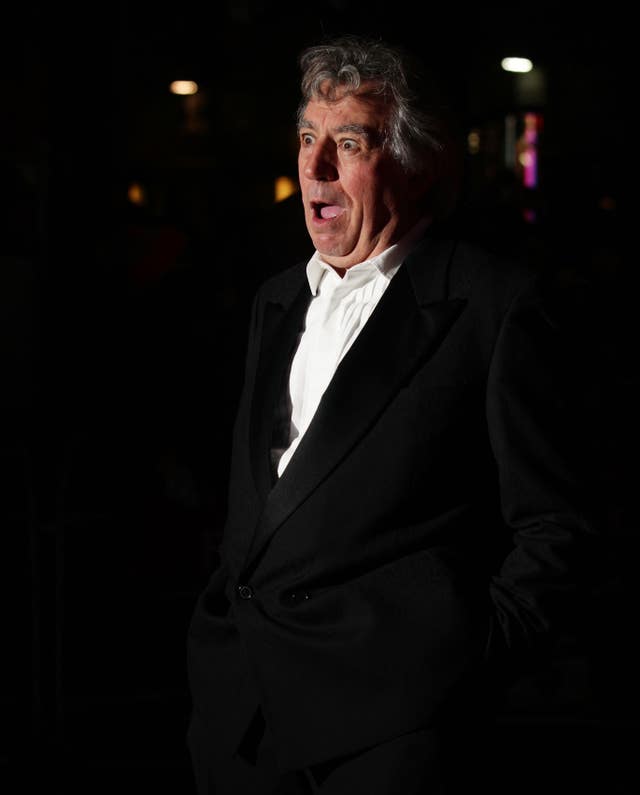Terry Jones: A comedy genius who also made his mark behind the camera
The Welsh-born performer helped forge the surreal style of TV series Monty Python’s Flying Circus.

Monty Python’s Terry Jones made his mark behind as well as in front of the camera, directing some of the comedy troupe’s most-loved works.
On-screen, the comedy genius had audiences in stitches in a variety of characters, often appearing in drag.
But he also directed Life Of Brian, a film which sparked outrage after its 1979 release but is now an undisputed comedy classic.

Jones also helped forge the surreal style of TV series Monty Python’s Flying Circus, which changed the tone of British comedy.
The comedian was born in Colwyn Bay, North Wales, in 1942, moving to Claygate, Surrey, at the age of five.
At Oxford University he became involved in the theatre scene and met fellow Python-to-be Michael Palin, with whom he went on to write TV series Ripping Yarns.
The pair wrote and performed revues for the university’s theatre club.
Later, Jones worked on TV shows like The Frost Report, Do Not Adjust Your Set, Broaden Your Mind and The Complete And Utter History of Britain.

TV history was created after Jones sat down at a tandoori restaurant in north London, in 1969, with Palin, Graham Chapman, John Cleese, Eric Idle and US animator Terry Gilliam to discuss working together on a new BBC comedy.
They wanted to move away from the punchlines and structure of traditional sketch comedy.
Irreverent TV series Monty Python’s Flying Circus was born, making its debut late on a Sunday night on BBC One on October 5, 1969, just before the weather bulletin.
Some 45 episodes of the show, with its surreal, stream-of-consciousness style, aired until 1974, and it snapped up Bafta awards and even led to a German spin-off.
Jones often appeared in drag, sometimes as a “haggard housewife,” or nude, while his other characters included Arthur “Two Sheds” Jackson, Cardinal Biggles of the Spanish Inquisition and Mr Creosote, the monstrously obese restaurant patron.
He made his directorial debut, alongside Gilliam, with Monty Python And The Holy Grail in 1975.
Jones later directed Life Of Brian (1979), about a hapless man mistaken for Jesus.
The film was attacked as blasphemous but has since been voted the funniest of all time.

Jones also went on to direct The Meaning Of Life (1983), the Pythons’ last film together.
It featured loosely linked sketches and the unforgettable song, Every Sperm Is Sacred.
After the Pythons went their separate ways, Jones directed Personal Services (1987), a fictional biopic starring Julie Walters and inspired by real-life madam Cynthia Payne.
He also went behind the camera for Erik The Viking (1989), based on his own children’s book.
His other credits include The Wind In The Willows (1996), with performances from Idle, Palin, and Cleese, and 2015 comedy Absolutely Anything, as well as presenting documentaries.

In 2014, Jones took part in a reunion of remaining Monty Python members – Graham Chapman died of cancer in 1989.
The live stage show, which featured an extended cast of dancers, a full orchestra and special effects, delighted thousands of fans.
But in 2016 it was announced that Jones had been diagnosed with dementia.
He suffered from primary progressive aphasia, which affects the ability to communicate.

Jones later told the PA news agency, at an event to help publicise the condition, that he could no longer write.
Palin told The Observer: “The thing that struck me was how Terry reacted to his diagnosis. He was very matter of fact about it and would stop people in the street and tell them, ‘I’ve got dementia, you know. My frontal brain lobe has absconded’.
“He knew exactly what was affecting him and he wanted to share that knowledge – because that is the way that Terry is.
“FTD (Frontotemporal dementia) may cause loss of inhibition, but Terry was never very inhibited in the first place.”
Jones married Alison Telfer in 1970, and they had two children together.
He became a father again, at the age of 67, with his second wife Anna Soderstrom.





